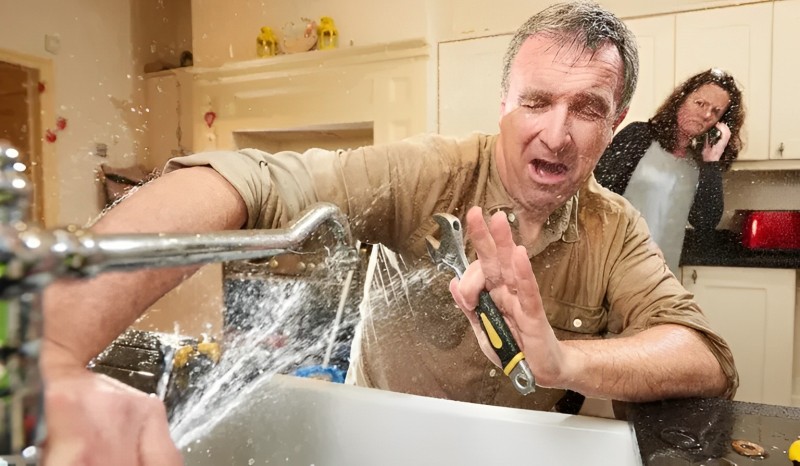Many people are seeking a career change due to employment loss brought on by the coronavirus outbreak. If you’ve ever considered becoming an emergency plumber, this could be the perfect time to act on your desire. Plumbers make a lot of money and typically have happy customers.
The organization is licensed to operate with gas and is ready for all plumbing services. They can also send a plumber to help prevent water damage to your house.
Read on if you want to learn how to become a plumber who can work with gas fittings or if you want to learn how to become an emergency plumber so you can assist homes. Everything you need to know about retraining to become a plumber is covered in this article.
What Is an Emergency Plumber?
Plumbers are experts who can put in water-using fixtures, pipes, and fittings. They also fix the pipelines that supply houses and businesses with gas or water. Today’s plumbers have a variety of tasks to complete. A plumber can repair sinks, toilets, or water heaters one day and install a plumbing system in a new building. If there are serious problems, such as busted pipes or leaking toilets, emergency plumbers will be on hand to remedy them.
The Plumbers Salary
The typical plumber in America will make around $55,000 per year. The standard beginning pay varies from state to state, costing around $48,000. Plumbers with more expertise or those who work emergencies can make up to $63,000.
The salary will vary depending on years of experience, education, and any extra certifications or talents.
How to Become a Emergency Plumber
To become a plumber, you must not fear getting your hands dirty or being concerned about germs. Additionally, you should be able to work individually and in a team and have good hand-eye coordination. Since they interact with many people daily, plumbers need excellent communication and customer service skills.
Additionally, you must be physically fit for the job and appreciate manual labor. Plumbers must perform their tasks in a range of temperatures. You may need up to four years in school if you decide that plumbing is your career. Let’s examine the procedures required to become a plumber:
Education
If you want to become a plumber, you should first put a lot of effort into school. Aim to earn your GED or high school diploma. Study these courses in school since plumbing requires essential reading, writing, science, and arithmetic understanding.
You should practice measuring or studying geometry since you will need to be able to take precise measurements to be a plumber. Avoiding having any hits on your record is a good strategy. If you have a history of DUIs, failed drug tests, or reckless driving charges, you might be unable to enroll in plumbing school.
Enroll in a Technical Program
You’ll need to hunt for a technical school that will let you train as a plumber after you graduate from high school or if you’re older and looking for a career shift. Check your state’s regulations, as they may differ from others. Before beginning an apprenticeship and obtaining your license as a plumber, you must complete a predetermined amount of classroom hours.
Search for courses at your neighborhood community college, stop by trade schools, and get assistance from the Professional Plumbing Association. A plumbing school will typically teach you how to install and fix water heating systems and about pipe measuring, cutting, and local plumbing regulations and codes. The duration of in-person education and training is roughly one year.
Find an Apprenticeship
Most states mandate that you complete an apprenticeship before you may start working as a plumber. After completing your in-class education, you must complete a two- to five-year apprenticeship. You must complete the internship as part of the training process before you can become a licensed plumber. The majority of apprentices are compensated while they work.
While you are still in school, you might be eligible to begin your apprenticeship. You can locate an apprenticeship by asking your trade school or organization about where to apply. You should also contact nearby plumbing companies to determine whether they are taking on apprentices.
Getting Your License
You can obtain your plumbing license after finishing trade school and your apprenticeship. You’ll need to pass a test to be completely qualified. Before receiving your request, you must pass both a written and a practical exam.
Job Prospects
A marvelous industry to enter is plumbing. Plumbers, especially emergency plumbers, are always needed by homeowners. In the upcoming ten years, employment in the plumbing industry is predicted to increase by 16%. Numerous businesses and households frequently require an emergency plumber due to the thousands of new residences that are being developed.
Older buildings’ plumbing systems will also need to be modernized and improved. After completing your plumbing training, it’s a good idea to continue honing your abilities to stay current with plumbing methods. You can obtain various credentials and licenses, including the competence to deal with gas. These extra certificates will improve your professional prospects.
Read More:

